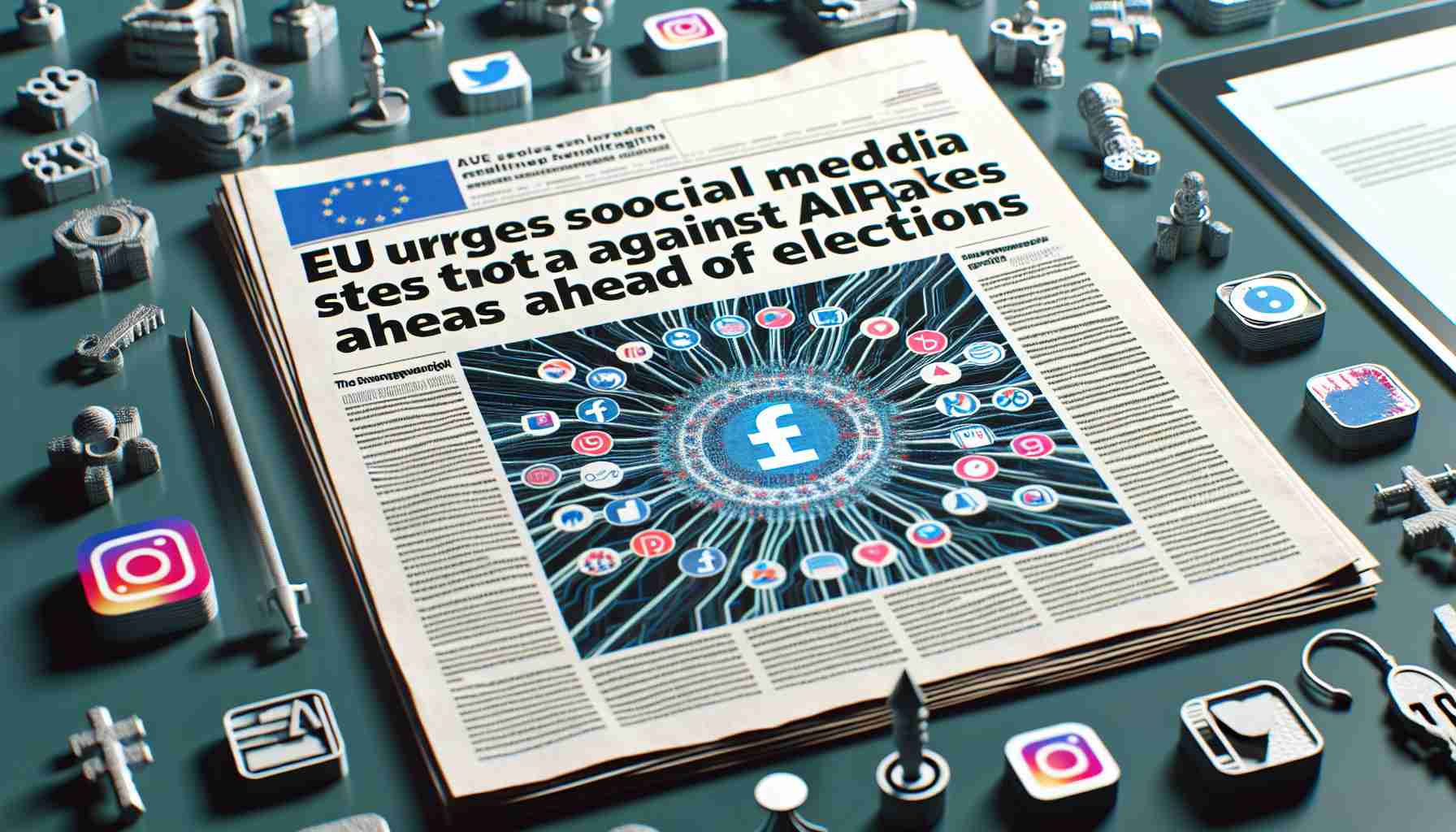The European Union (EU) has recently called on major social media platforms including Facebook and TikTok to take decisive action against the rising threat of artificial intelligence (AI) deepfakes in light of the upcoming European elections in June. This appeal comes as part of the EU’s broader efforts to regulate AI content on popular social networking sites.
European lawmakers have already passed the groundbreaking Digital Markets Act (DMA), which identifies 22 significant social media platforms, such as YouTube and Snapchat, as “very large” sites. The DMA will be implemented in stages, with potential penalties for violators as early as this year. To ensure compliance and prevent manipulation and disinformation campaigns, the European Commission has now released guidelines specifically tailored to these major social media players ahead of the European elections.
Europe’s digital Commissioner, Thierry Breton, emphasized the importance of these guidelines, stating, “With today’s guidelines, we are making full use of all the tools offered by the DSA to ensure platforms comply with their obligations and are not misused to manipulate our elections, while safeguarding freedom of expression.”
One notable recommendation from the commission is that social media platforms should clearly label AI-generated content, particularly deepfakes, which aim to deceive viewers by presenting manipulated or fabricated videos or images. This labeling will enable users to identify and evaluate potentially misleading or false information more effectively.
In addition to content labeling, the EU guidelines highlight the need for social media platforms to promote official information regarding elections and to reduce the monetization and virality of content that may compromise the integrity of electoral processes. Political advertising should also be clearly labeled, with stricter regulations set to come into effect in 2025. Platforms are urged to implement mechanisms that minimize the impact of any incidents that could significantly influence election outcomes or turnout.
To ensure the effectiveness of these guidelines, the EU plans to conduct “stress-tests” with relevant platforms in late April, in a proactive effort to identify and address potential vulnerabilities before the European elections take place from June 6-9.
FAQ:
1. What is the purpose of the EU’s appeal to social media sites?
The EU is urging major social media platforms to take action against AI deepfakes in order to safeguard the integrity of the upcoming European elections.
2. What is the Digital Markets Act (DMA)?
The DMA is legislation approved by European lawmakers to regulate AI content on significant social media sites.
3. What are some of the key recommendations in the EU’s guidelines?
The guidelines suggest that social media platforms should clearly label AI-generated content, promote official information on elections, reduce the monetization and virality of potentially harmful content, and implement mechanisms to minimize the impact of incidents that could influence election outcomes.
4. When will stricter regulations on political advertising come into effect?
Stricter regulations on political advertising will take effect in 2025.
Sources:
– [European Commission](https://ec.europa.eu/commission/presscorner/detail/en/ip_22_2065)
The European Union’s appeal to major social media platforms regarding AI deepfakes reflects the growing concern over the potential impact of manipulated content on the upcoming European elections in June. However, this issue is just one aspect of the broader landscape of the AI industry and its impact on society.
The AI industry is witnessing significant growth and innovation across various sectors. From healthcare to finance, AI technologies are being utilized to enhance efficiency, improve decision-making processes, and drive advancements. Market forecasts suggest that the global AI market will continue to expand in the coming years, with estimates projecting a value of $190 billion by 2025.
Despite the numerous benefits AI brings, it also poses certain challenges and risks. One of the main concerns is the emergence of deepfakes, AI-generated content that can convincingly mimic real people and events. Deepfakes have the potential to spread misinformation and manipulate public opinion, making them a significant threat to democratic processes, including elections.
Addressing these challenges, the EU’s Digital Markets Act (DMA) has set the stage for the regulation of AI content on social media platforms. The DMA identifies 22 major platforms as “very large” sites, subjecting them to compliance measures and potential penalties. These regulations aim to ensure transparency, fairness, and accountability in the deployment of AI technologies.
In light of the upcoming European elections, the European Commission has released guidelines specifically targeting major social media platforms. These recommendations cover a range of measures, including the clear labeling of AI-generated content, promotion of official election information, and reduction of harmful content monetization and virality. Stricter regulations for political advertising are also on the horizon, with the EU planning to implement them by 2025.
While the EU’s current focus is on the threats posed by deepfakes and the integrity of elections, the broader AI industry also faces other challenges. Ethical concerns surrounding data privacy, algorithm bias, and job displacement are among the key issues that need to be addressed. As AI technologies continue to advance, policymakers, businesses, and society as a whole must work together to strike a balance between innovation and the responsible and ethical use of AI.
For more information on the European Commission’s appeal to social media sites and guidelines for AI regulation, you can visit their official website: European Commission – Press Corner.
The source of the article is from the blog xn--campiahoy-p6a.es

